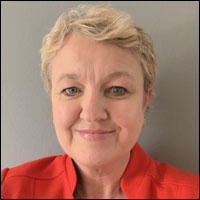Lees deze pagina in het Nederlands
This symposium took place on 18 June 2021. Go to the homepage 'De hokjes voorbij' to watch the videos of the keynote lectures.

Mental Illness Stigma: Consequences, Disclosure and Interventions
Mental illness stigma is a huge burden for people with mental illness and society - and an issue of social (in)justice. Nicolas Rüsch will outline what stigma is, what some of its consequences are, and which interventions are available to reduce public stigma, self stigma and structural stigma. Disclosure or non-disclosure is one way for people with mental illness to cope with stigma, and therefore interventions that deal with disclosure decisions will be covered in more detail.
Nicolas Rüsch is Professor of Public Mental Health at the University of Ulm, Germany and consultant psychiatrist at the affiliated psychiatric hospital. After his clinical training in adult psychiatry and neurology in Freiburg and Rome, he worked for two years as an EU Marie Curie Fellow with the prominent mental illness stigma researcher Patrick Corrigan in Chicago. Later he did research into stigma among young people at risk of psychosis, and into the peer-led Coming Out Proud programme (now: Honest Open Proud). His recent work is about self disclosure (being open to others about your mental health issues or not); and unemployment, mental health and service use.

Chronic Shame and the Experience of Stigma
Shame related to stigma often remains invisible and unspoken. This can exacerbate the negative consequences of stigma for (mental) health. Luna Dolezal addresses this problem from phenomenology: a philosophical tradition that aims to describe lived experience – in this case the experience of stigma that manifests itself through chronic shame. From this theoretical starting point, she provides practical considerations to (healthcare) professionals who work with people who experience stigma: why these professionals should be aware of shame, and how they can be sensitive to it.
Luna Dolezal is an Associate Professor in Philosophy and Medical Humanities at the University of Exeter. She is principal investigator of the 'Shame and Medicine' project, funded by the Wellcome Trust and PI of the 'Scenes of Shame and Stigma in COVID-19' project, funded by the UKRI-AHRC. She is author of The Body and Shame: Phenomenology, Feminism and the Socially Shaped Body (Lexington Books, 2015), and co-editor of Body/Self/Other: The Phenomenology of Social Encounters (SUNY Press, 2017) and New Feminist Perspectives on Embodiment (Palgrave 2018).

Stigma Power: Mental Distress, Poverty and Welfare
Stigma is not a self-evident phenomenon, but like all concepts has a history. Focusing on the mental distress associated with rising rates of poverty and inequality in Britain in the wake of austerity cuts to state welfare, this talk argues for richer historical understanding of stigma as a form of power embedded within the social relations of welfare capitalism.
Imogen Tyler is a Professor of Sociology and Head of Department of Sociology at Lancaster University in the UK. A teacher, writer and social activist, she leads a social action research group, is a member of the Morecambe Bay Poverty Truth Commission, a trustee of the UK Poverty Truth Commission Network, and a member of Lancaster Black History Community group. She has published widely on issues of social inequality and injustice, including Revolting Subjects: Social Abjection and Resistance in Neoliberal Britain (2013) and Stigma: the Machinery of Inequality (2020).
